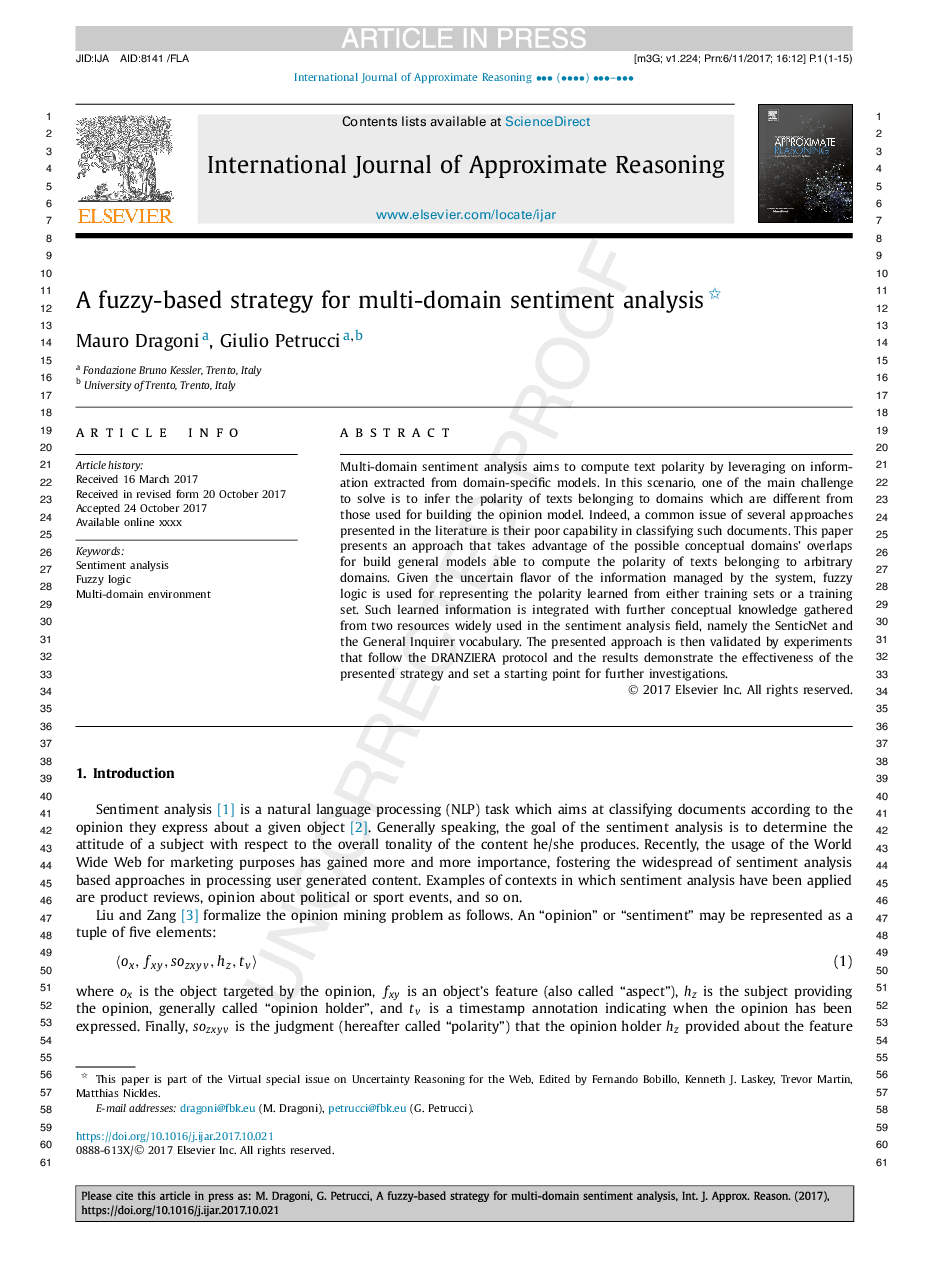| Article ID | Journal | Published Year | Pages | File Type |
|---|---|---|---|---|
| 6858832 | International Journal of Approximate Reasoning | 2018 | 15 Pages |
Abstract
Multi-domain sentiment analysis aims to compute text polarity by leveraging on information extracted from domain-specific models. In this scenario, one of the main challenge to solve is to infer the polarity of texts belonging to domains which are different from those used for building the opinion model. Indeed, a common issue of several approaches presented in the literature is their poor capability in classifying such documents. This paper presents an approach that takes advantage of the possible conceptual domains' overlaps for build general models able to compute the polarity of texts belonging to arbitrary domains. Given the uncertain flavor of the information managed by the system, fuzzy logic is used for representing the polarity learned from either training sets or a training set. Such learned information is integrated with further conceptual knowledge gathered from two resources widely used in the sentiment analysis field, namely the SenticNet and the General Inquirer vocabulary. The presented approach is then validated by experiments that follow the DRANZIERA protocol and the results demonstrate the effectiveness of the presented strategy and set a starting point for further investigations.
Keywords
Related Topics
Physical Sciences and Engineering
Computer Science
Artificial Intelligence
Authors
Mauro Dragoni, Giulio Petrucci,
